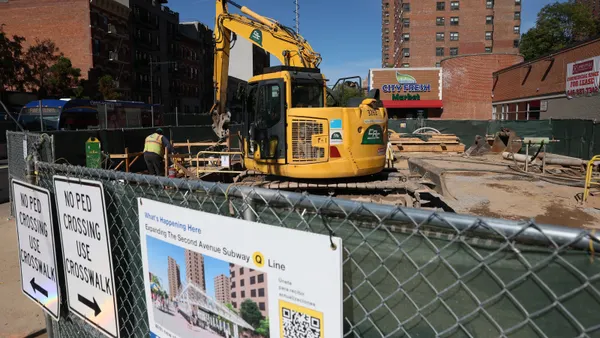Dive Brief:
- In a survey of construction companies with employee stock ownership plans in place, Prairie Capital Advisors found that they fared well in many key areas, with almost 68% reporting that the pandemic had not impacted their operations as far as sustainability, cash flow and liquidity, culture or stock repurchase obligation.
- The vast majority of ESOPs reported that access to capital was not an issue during the past year, and 82% said they did not expect that to change in 2021. In addition, 79% said that the pandemic had not affected their bank financing and almost 67% said that they did not plan on reducing expenses in 2021.
- On the other hand, COVID-19 negatively impacted profit for 50% of the ESOPs surveyed and 30% of firms said it is more challenging to recruit skilled labor. In addition, more than 79% experienced some level of supply chain disruption in 2020.
Dive Insight:
A standard ESOP will see existing stockholders sell all or some portion of their shares to the program for allocation to employees. Qualifying employees are allocated shares according to their part of total payroll. The vesting period (the time an employee must work for the company in order to achieve stock ownership) is three to five years, and employees must sell their shares back to the ESOP when they leave the company for another employer or retire.
There are other types of employee ownership — i.e. profit sharing, worker cooperatives and stock purchase programs — but the ESOP, according to the National Center for Employee Ownership's list of the largest majority employee-owned companies is the most popular.
The NCEO's list of companies that have some level of employee ownership includes many AEC firms such as:
- Parsons
- Black and Veatch
- HDR
- Graybar Electric
- Rosendin Electric
- Burns & McDonnell Engineering
- Performance Contracting
- Austin Industries
- Gensler
- Terracon
- CDM Smith
- Hensel Phelps Construction
- Cianbro
- Swinerton Builders
- HNTB
- McCarthy Building Co.
A study conducted by Rutgers University and market research firm SSRS found that ESOPs with majority employee ownership in all industries outperformed other companies during 2020. Some of the study's key takeaways were that ESPOs were:
- Between three and four times more likely to retain staff.
- Less likely to cut employee hours and less likely to reduce pay.
- More quickly to protect employee safety and health at the outset of the pandemic through the early distribution of personal protective equipment, sanitization programs and allowing employees to work from home.












